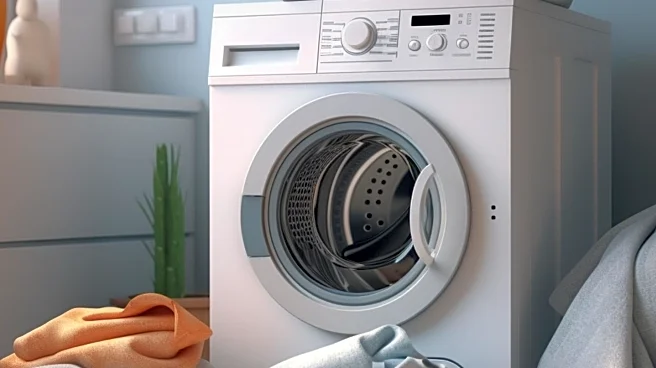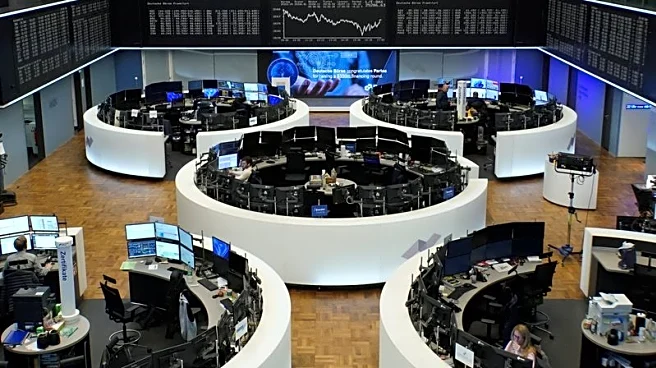What's Happening?
Laundry is a routine chore that can be surprisingly costly due to the significant water and electricity usage involved. Consumer Reports has provided insights into how consumers can clean their clothes more efficiently without incurring high utility bills. Key recommendations include using high-performing detergents like Tide Plus Ultra Stain Release for tough stains, while Costco's Kirkland Signature detergent offers a cost-effective alternative for everyday messes. The report advises against using fabric softeners and dryer sheets, as they can leave residues that affect clothing and dryer performance. Additionally, it suggests skipping hot water cycles, which account for nearly 90% of a washer's energy use, and opting for cold water to preserve fabric quality. For drying, using the dryer's automatic cycle setting or traditional methods like clotheslines can further reduce energy consumption. LG's washer and dryer models are noted for their top efficiency scores, offering a potential solution for those in the market for new appliances.
Why It's Important?
The recommendations from Consumer Reports are significant as they address the growing concern over household energy consumption and its impact on utility bills. By adopting energy-efficient laundry practices, consumers can significantly reduce their energy usage, leading to lower costs and a smaller environmental footprint. This is particularly relevant as energy prices continue to rise, prompting households to seek ways to cut expenses. The emphasis on using cold water and efficient appliances aligns with broader efforts to promote sustainability and reduce carbon emissions. As consumers become more environmentally conscious, these practices not only offer financial savings but also contribute to global efforts in energy conservation.
What's Next?
Consumers may increasingly turn to energy-efficient appliances and practices as awareness grows about their benefits. Retailers and manufacturers might respond by promoting products that align with these efficiency standards, potentially leading to innovations in appliance design and detergent formulations. Additionally, there could be an increase in consumer education initiatives aimed at highlighting the importance of energy conservation in everyday activities. As more households adopt these practices, there may be a noticeable impact on overall energy demand, influencing utility companies and policymakers to consider further incentives for energy-efficient behaviors.
Beyond the Headlines
The shift towards energy-efficient laundry practices reflects a broader cultural change towards sustainability and environmental responsibility. As consumers become more aware of their ecological impact, there is potential for a ripple effect across other household activities, encouraging a comprehensive approach to energy conservation. This trend may also influence the development of new technologies and products designed to minimize energy use, fostering innovation in the appliance industry. Furthermore, the emphasis on reducing energy consumption aligns with global efforts to combat climate change, highlighting the role of individual actions in achieving larger environmental goals.










